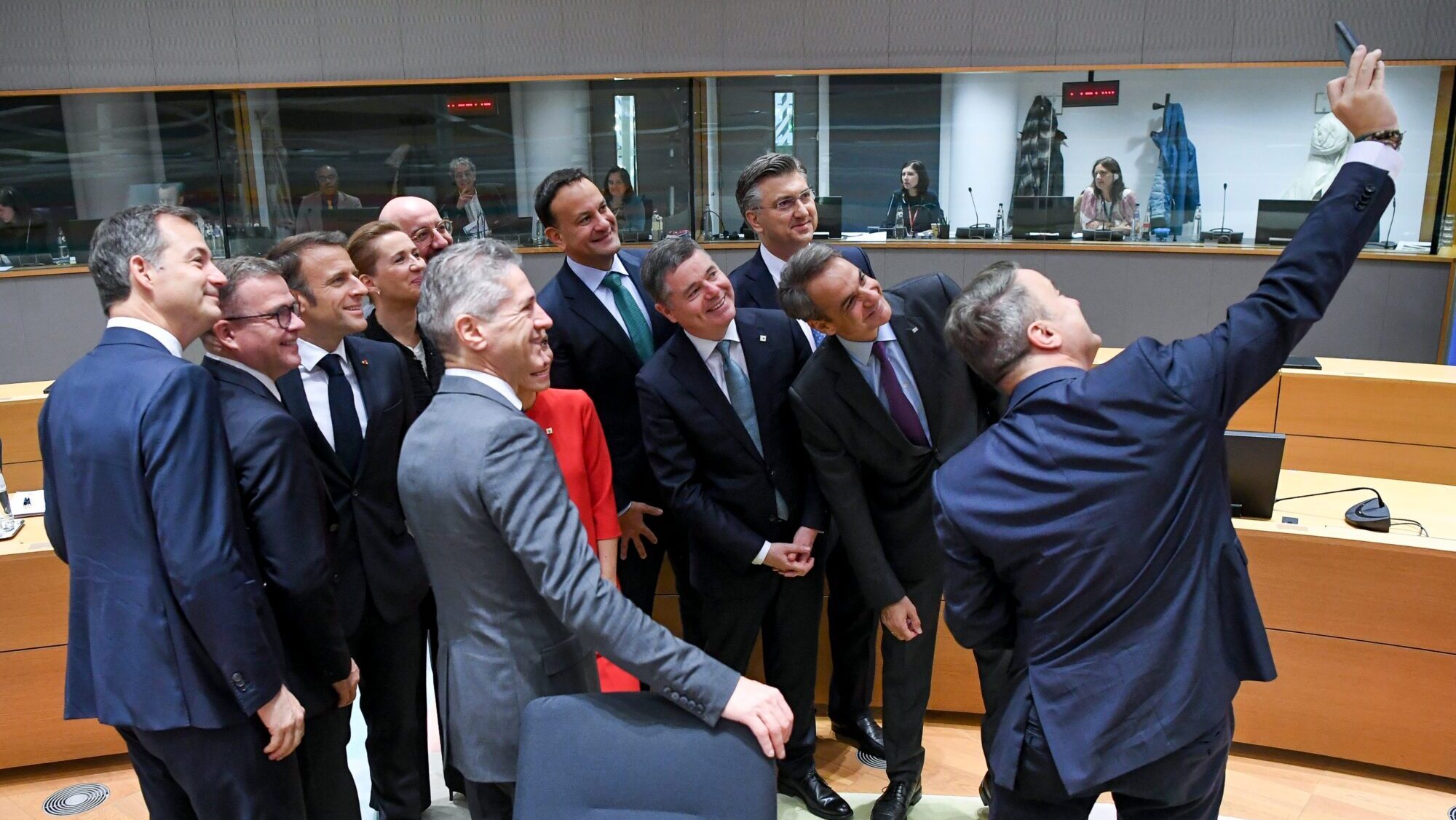
Photo: Presidencia española del Consejo de la UE
The ongoing war between Hamas and Israel sucked up most of the oxygen in Brussels this week as EU leaders locked horns over the right language to use at an unusually busy European Council summit from October 26th-27th.
The crisis in Gaza, the war in Ukraine, as well as lingering tensions in the Balkans—nevermind the potential for fresh conflict between Armenia and Azerbaijan—contributed to a jam-packed foreign policy agenda, with Eurocrats still licking their wounds after the disunity over what line to take regarding the carnage in Palestine.
After agreeing to condemn Hamas’s attack on Israel and affirm Tel Aviv’s right to defend itself, EU leaders moved onto the salient topic of migration, with Belgian Prime Minister Alexander De Croo now pushing for a more proactive deportation policy for illegal migrants in light of the recent attack in Brussels on Swedish football fans by a Tunisian illegal immigrant.
As a sure sign of shifting rhetoric among European leaders on the migration issue, Viktor Orbán linked the issue of mass migration to spiralling crime rates in an interview shortly before the summit.The Hungarian prime minister’s non-confrontational approach to Russia’s invasion of Ukraine was helped by the presence of the new Slovakian Prime Minister Robert Fico, who was elected on a NATO-critical platform earlier this month.
The emergence of a pro-peace bloc at the Council poses serious questions about the EU’s continued resolve to fund the Ukrainian war effort, with Council President Charles Michel keen to gloss over growing factionalism in the EU’s foreign policy.
Both Hungary and Slovakia are opposing new funds for Ukraine as part of the EU budget, with the newly installed Slovakian government, itself a NATO member, announcing the cessation of arms supplies to Kyiv motivated by the impact of the war on its domestic economy, which is heavily exposed to Russian sanctions.
In his remarks at the summit, Fico emphasised that additional armaments to Ukraine were both futile and a hard sell to his electorate at home, as he warned that EU money was already being wasted due to corruption in Kyiv.
The joint Hungarian and Slovakian anti-war position is understood to have aggrieved certain hawkish Baltic governments, with Estonian Prime Minister Kaja Kallas saying that she expected strained talks between EU leaders Friday morning on the final day of the two-day conference.
On Gaza, EU leaders finally agreed to call for a “humanitarian pause” to hostilities, with Spain and Ireland in particular frustrating attempts to take a unified pro-Israel line. Hamas’s attack on Israel has been a textbook example of the failure of the EU to establish a coherent foreign policy to address evolving crises and contributed to a very public spat at an EU-U.S. conference earlier in the summit.
Regarding migration, EU leaders will discuss the implementation of the so-called Granada Declaration, tailored to frustrate human traffickers, bribe third-party countries to help with migration control, and promote legal over illegal immigration as the asylum crisis continues at pace.
Behind the scenes at the Council summit, there was no luck in EU attempts to mediate peace between Serbia and Kosovo amid ratcheting tensions over the rights of ethnic Serbs in northern Kosovo.
